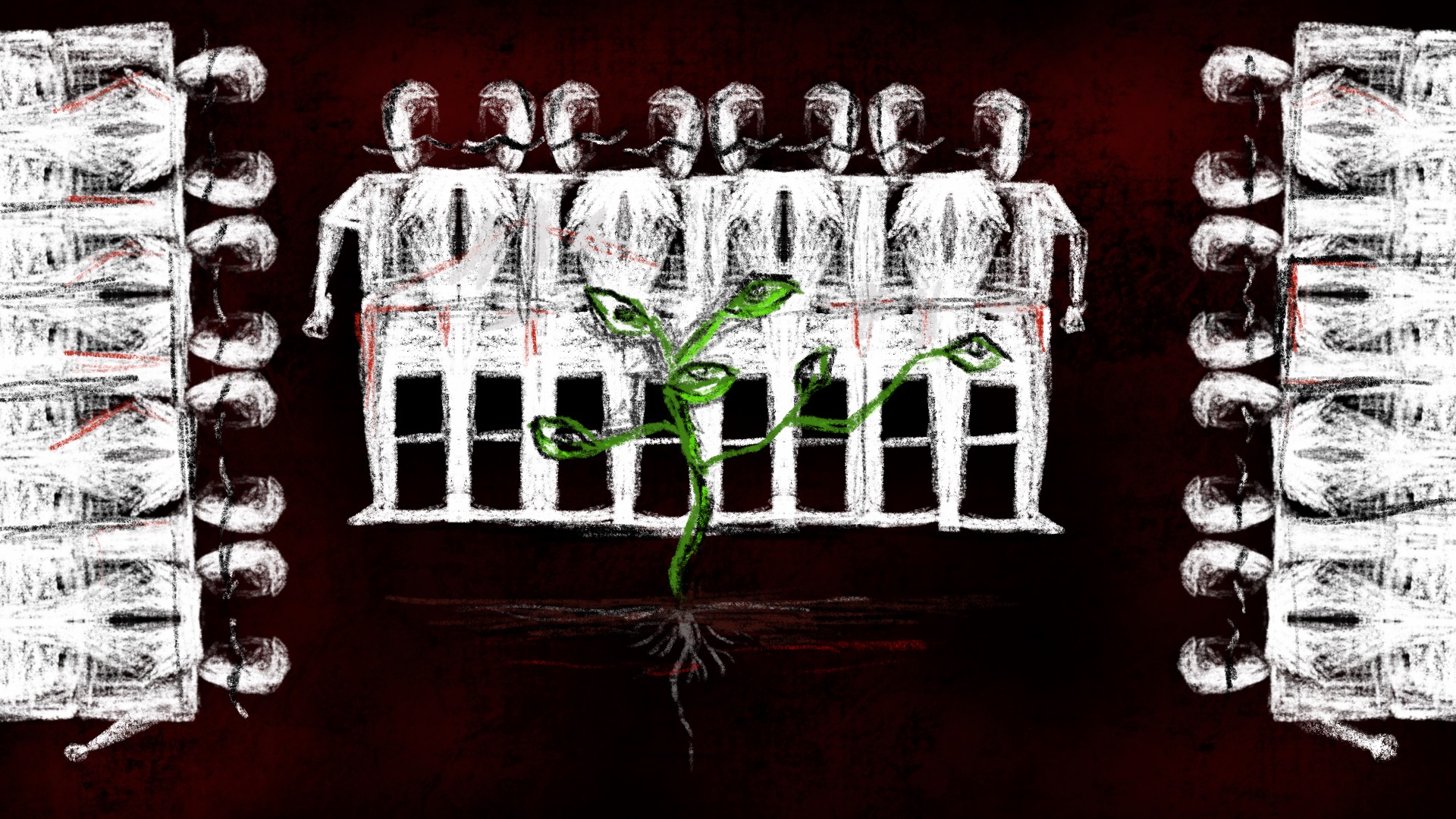I was reading in my room when I heard my mother ask dad for the fifth time whether he wanted rotis or parathas for dinner. My father’s response – for the fifth time – was silence as he continued to use his phone, refusing to look up. I left the room because I sensed that my mother was getting impatient.
This wasn’t the first time I was seeing a non-cooperative dynamic between my parents. Whenever my mother was hurt by something my father said and adopted the silent treatment method of rebuke, my father would ask me to stay with mom, talk to her and try to lift her spirits. I would do these things until she cooled down and things got back to normal.
However, whenever my father remained silent after feeling hurt by something my mother had said – like today – I simply couldn’t get myself to console him. It felt like I would be breaking a sacred order and code present between father and son if I comforted him without him having said anything.
Also read: Ghosts of My Family’s Past: Rage, Endurance and the Fruits of Toxic Masculinity
I couldn’t understand the reason for this disparity in my attitude. One question loomed ceaselessly in my mind: why is it so hard for me to comfort my father? As I sat beside my silent father today to show solidarity, not knowing what else to do, I realised why it’s so hard for me to comfort him on my own.
I know my father was feeling hurt today. But I felt like I could only comfort him if he gave voice to his perturbations. If me consoling him arises as a reaction to something he says, I’m just being human and reacting to what he is saying.
But if I console him without him saying anything first – that is me taking initiative to make things better. This could be construed to imply two things.
First, it would imply that I think that the man of the house needs consoling. My father, a man in his fifties with relatively conservative ideas about what it means to be a man, won’t appreciate this insult to his manhood.
Second, it might imply that the child is acting in a more mature and collected manner than the man of the house. This too could hurt my father’s sense of masculinity and end up being counterproductive.
To console him out of my own accord felt like committing an act of in famiglia, as Mario Puzo might put it.
It’s not my father’s fault that he believes exhibiting conventionally non-positive emotions is a sign of being effeminate and thus weak. Rather, it would come as a surprise if a man in his fifties living in our country doesn’t think this way. Culture has de facto defined for us what it means to be a man and one medium which has left a significant mark on the average person’s idea of masculinity in our country is film.
The 1970s in India saw the rise of the character of the ‘angry young man’. Played by Amitabh Bachchan in films like Deewar (1975), Zanjeer (1973) and Trishul (1978), this character was the most prominent and recognisable representation of the common man’s disillusionment with the socio-political reality around him.
The angry young man was a stoic and hypermasculine character who rarely exhibited emotions beyond pride and rageful indignation. Bachchan’s character, mostly named ‘Vijay’ in these films, was usually a man who didn’t show any signs of emotions like grief or insecurity.
Also read: I Am Tired of Being the ‘Man’ the Society Wants Me to Be
Certainly, dialogues like, “Mard ko dard nahin hota” (Men feel no pain), were construed by crores of people to mean that a man who feels any kind of pain, mental or physical, is no man at all.
These films fleshed out what manhood is supposed to be for around half a billion people in the 1970s and the same notion continues to be celebrated even now with characters like Rocky in K.G.F: Chapter 2 (2022).
It was my father himself who made me watch these ‘angry young man’ classics. As my eyes moved back and forth between the screen and my father’s face to see how wide he smiled whenever Bachchan said something macho, it became clear to me how much he revered these films and what they stood for.
I don’t know if a day will come when my father feels differently and knows that it is okay for him to be emotionally vulnerable. That it is okay for him to need comforting. That I would still see him as being as masculine as he is today.
Until then, I choose not to disrespect him by comforting him. All I can do is sit beside him in silence. And perhaps write about it later.
Shrey Shantanu is a student of Calcutta University. When not watching films, he can be seen taking a walk or reading a book.
Featured image: Pariplab Chakraborty

